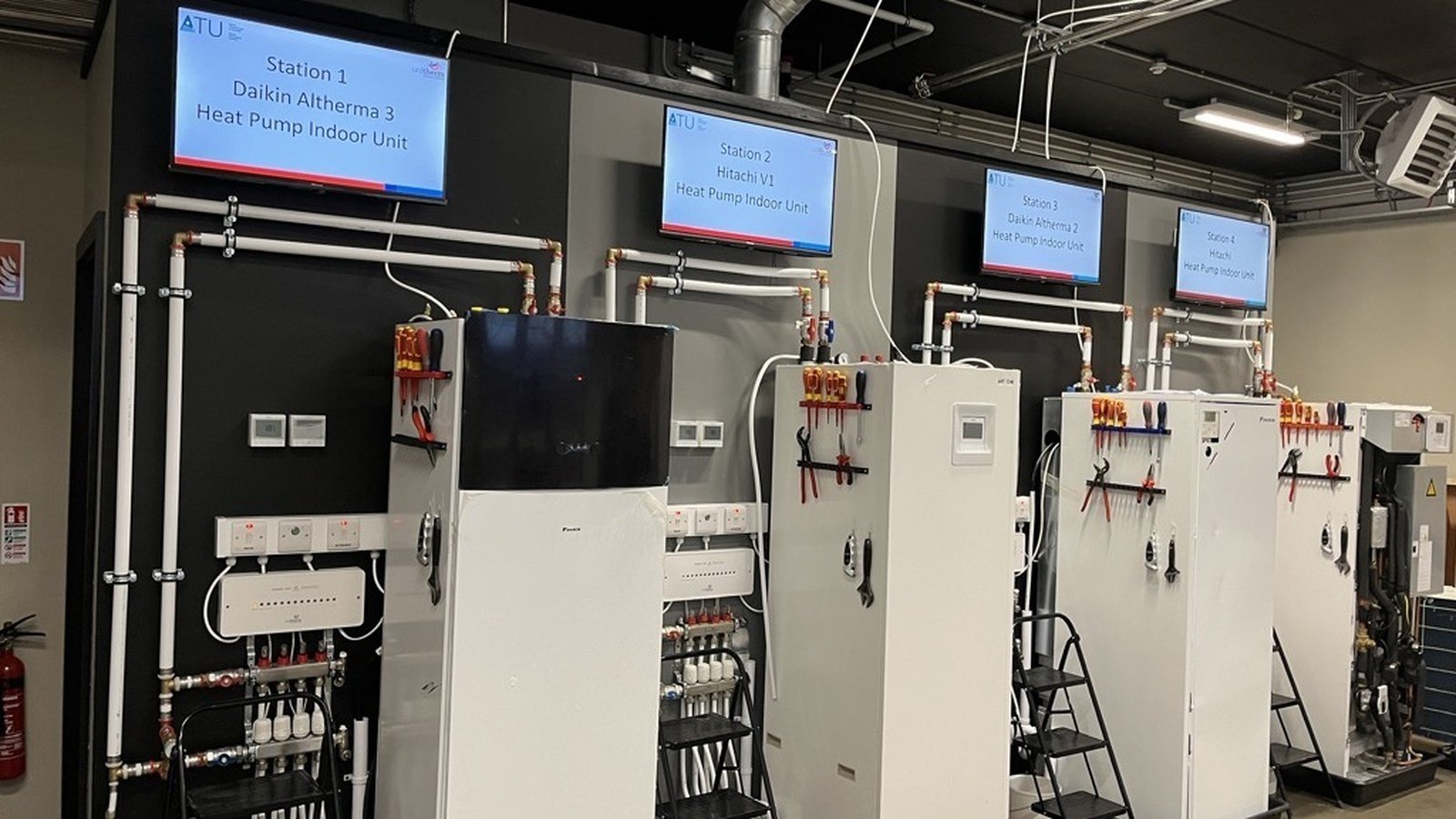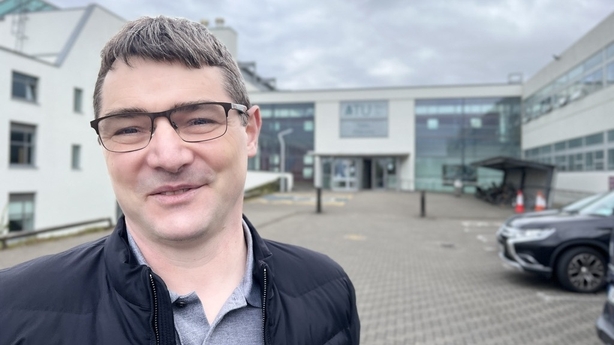Bussiness
Students take part in heat pump servicing course

A skills shortage when it comes to the maintenance and installation of environmentally friendly home improvements has led to a number of new third-level courses.
The Atlantic Technological University in Galway has devised an accredited training programme for heat pump servicing with participants from around the country taking part.
The thirteen-week course was developed in conjunction with a local company, Unitherm Heating Systems, and offers participants a mix of theoretical and practical instruction.
The Head of Mechanical and Industrial Engineering at ATU Galway said the initiative came about as a result of the forecasted need for between 250 and 300 extra service technicians a year, in order to meet the requirements of homeowners.
Dr Oliver Mulryan explained how Climate Action targets will result in a huge increase in the number of heat pumps in both new and renovated dwellings between now and 2030.
Having trained personnel to both fit and service the units is seen as key to building public confidence.
Students attend classes at the ATU School of Engineering and then put what they have learned into practice at a bespoke training centre a short distance away at Unithem’s Galway facility.
A dedicated lecture space and practical workshop have been built there to augment the college aspect of the course.
Liam Jordan from Unitherm said the company had years of experience in heat pump technology and that the link with the third-level institute was a natural progression.
“We need lads to be able to identify problems with these systems as they arise and to be equipped with the skills to then be able to deal with the various issues that they will come across,” he said.
He said there has been huge interest in the course offering and that many others have been travelling to the workshop to brush up on their existing knowledge base.
The “Heat Pump Installation, Commissioning, Maintenance and Servicing” programme has already turned out two sets of graduates with the next intake of students due to start their training in September.

Among those who have completed the course are Kevin Rice and Niall McCarthy from Cork.
Mr Rice is an electrician and said he realised there was an opening for him to broaden his service offering by being able to provide heat pump maintenance.
He is now hoping to expand his business by having an extra string to his bow and being able to facilitate the huge number of requests he’s encountered from people seeking services.
Mr McCarthy, who works for an approved housing body, said there is enough work in dealing with the volume of heat pumps that have been retrofitted, and that shift from oil and gas means that demand will not ease anytime soon.
A colleague of his, Martin Griffin from Kilkenny, said the course had given a good overview of the latest technologies as well as giving students the chance to gain hands-on experience on different models in the workshop.
That practical element appealed to all three, with Mr Rice remarking that he had been on courses before which were like “death by bullet point”.
In contrast, he said the ATU/Unitherm one had a perfect mix of materials that was infinitely more useful to those hoping to finesse their approach to heat pump installation and servicing.
Dr Mulryan said the course demonstrates the agility that the third-level sector must now have in order to be able to provide highly skilled graduates who are ready to meet the changing demands of society.
He believes that the collaboration between academics and industry experts can identify these needs and that similar programmes are likely, as the country works toward the adoption of new, energy-efficient and carbon-neutral technology.










